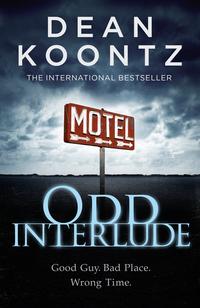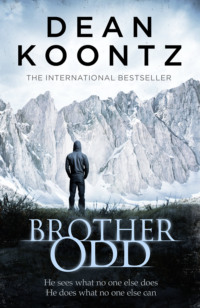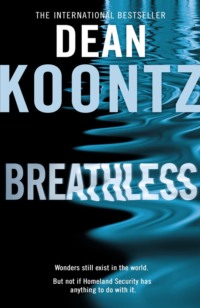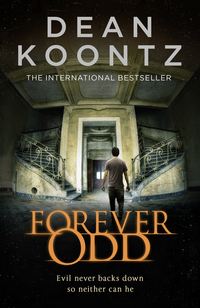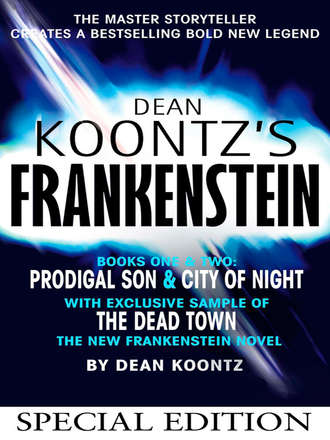
Полная версия
Frankenstein Special Edition: Prodigal Son and City of Night
As if reading her mind, Michael said, ‘A gun can always go off accidentally, but you’d have to explain why you drew it in the first place.”
CHAPTER 45
COMFORTABLE IN HER ROBE, ensconced in a wing-back chair, Erika spent the night and the morning with no company but books, and even took her breakfast in the library.
Reading for pleasure, lingering over the prose, she nevertheless covered a hundred pages an hour. She was, after all, an Alpha-class member of the New Race, with superb language skills.
She read Charles Dickens’s A Tale of Two Cities, and when she finished it, she did something that she had not done before in her weeks of life. She wept.
The story was about the power of love, the nobility of self-sacrifice, and the horrors of revolution in the name of political ideology, among other things.
Erika understood the concept of love and found it appealing, but she didn’t know if she would ever feel it. The New Race was supposed to value reason, to eschew emotion, to reject superstition.
She had heard Victor say that love was superstition. One of the Old Race, he’d made himself New. He claimed that perfect clarity of mind was a pleasure greater than any mere sentiment.
Nevertheless, Erika found herself intrigued by the concept of love and longed to experience it.
She found hope in the fact that she was capable of tears. Her built-in disposition toward reason at the expense of emotion had not prevented her from identifying with the tragic lawyer who, at the end of Dickens’s novel, went to the guillotine in place of another man.
The lawyer had sacrificed himself to ensure that the woman he loved would have happiness with the man she loved. That man was the one whose name the lawyer had assumed and in whose place he had been executed.
Even if Erika was capable of love, she would not be capable of self-sacrifice, for it violated the proscription against suicide that had been embedded in every member of the New Race. Therefore, she was in awe of this capacity in ordinary human beings.
As for revolution…A day would come when Victor would give the command, and the New Race living secretly among the Old would pour down upon humanity a storm of terror unprecedented in history.
She’d not been created to serve in the front lines of that war, only to be a wife to Victor. When the time came, she supposed that she would be as ruthless as her maker had created her to be.
If they knew what she was, ordinary humans would consider her a monster. Members of the Old Race weren’t her brothers and sisters.
Yet she admired much about them and, in truth, envied some of their gifts.
She suspected that it would be a mistake to let Victor know that her interest in the arts of the Old Race had evolved into admiration. In his view, they deserved only contempt. If she could not sustain that contempt, Erika Five could always be activated.
As noon drew near, when she was certain that the household staff had cleaned the master suite and made the bed, she went upstairs.
If the maids had found something extraordinary or just peculiar in the bedroom, if they had uncovered even a few rat droppings, she would have been told. Whatever had been in the bedroom the previous night must not be there now.
She prowled the suite anyway, listening for furtive sounds, looking behind furniture.
In the night, gripped by a surprising fear of the unknown, she had retreated. Fear, an important survival mechanism, had not been entirely denied to the New Race.
Superstition, on the other hand, was uncontestable proof of a weak mind. Victor had no tolerance for superstition. Those with weak minds would be recalled, terminated, replaced.
The most innocent-seeming superstition—such as a belief that ill fortune attended every Friday the thirteenth—could open a door in the mind to consideration of larger supernatural issues. The most essential purpose of Victor’s revolution was to complete the work of modernity and create a race of absolute materialists.
Erika searched the suite to quell the quasi-superstitious dread that had seized her the previous night and that still lingered. When she found nothing untoward, her confidence returned.
She enjoyed a long hot shower.
Members of the New Race, even Alphas like her, were encouraged to develop a keen appreciation for simple physical pleasures that could serve as an inoculation against emotions. Emotions themselves could be a form of pleasure, but also an antirevolutionary force.
Sex was among the approved pleasures, pure animal sex divorced from affection, from love. Sex between members of the New Race was also divorced from reproduction; they were engineered to be sterile.
Each new man and woman owed his or her existence to the direct action of Victor. The family was an antirevolutionary institution. Family fostered emotion.
Victor trusted no one but Victor to create life only for purely intellectual, solely rational reasons. Life from the lab will one day entirely replace life from the loins.
Shower completed, Erika opened the door of the stall, fished a towel from the nearby rack, stepped onto the bath mat—and discovered that she’d had a visitor. The splash of water and the clouds of steam had masked the movements of the intruder.
On the mat lay a scalpel. Stainless steel. Sparkling.
The scalpel must be one of Victor’s. He owned collections of surgical instruments acquired at various times during his two-century crusade.
Victor, however, had not put this blade on her bath mat. Nor had any member of the household staff. Someone else had been here. Something else.
Steam swirled around her. Yet she shivered.
CHAPTER 46
FOLLOWING THEIR STOP at the morgue, Michael made a play for the car keys, but Carson as usual took the wheel.
“You drive too slow,” she told him.
“You drive too asleep.”
“I’m fine. I’m cool.”
“You’re both,” he agreed, “but you’re not fully awake.”
“Unconscious, I wouldn’t drive as slow as you.”
“Yeah, see, I don’t want to test that claim.”
“You sound like your father’s a safety engineer or something.”
“You know he’s a safety engineer,” Michael said.
“What’s a safety engineer do, anyway?”
“He engineers safety”
“Life is inherently unsafe.”
“That’s why we need safety engineers.”
“You sound like probably your mother was obsessed with safe toys when you were growing up.”
“As you know perfectly well, she’s a product-safety analyst.”
“God, you must have had a boring childhood. No wonder you wanted to be a cop, get shot at, shoot back.”
Michael sighed. “None of this has anything to do with whether you’re fit to drive or not.”
“I am not only fit to drive,” Carson said, “I am God’s gift to Louisiana highways.”
“I hate it when you get like this.”
“I am what I am.”
“What you are, Popeye, is stubborn.”
“Look who’s talking—a guy who will never accept that a woman can drive better than he can.”
“This isn’t a gender thing, and you know it.”
“I’m female. You’re male. It’s a gender thing.”
“It’s a nut thing,” he said. “You’re nuts, I’m not, so I ought to drive. Carson, really, you need sleep.”
“I can sleep when I’m dead.”
The day’s agenda consisted of several interviews with friends of Elizabeth Lavenza, the floater without hands who had been found in the lagoon. After the second of these, in the bookstore where Lavenza had worked as a clerk, Carson had to admit that sleep deprivation interfered with her ability as an investigator.
Returning to the sedan, she said, “Okay, I gotta grab some sack time, but what’ll you do?”
“Go home, watch Die Hard.”
“You’ve watched it like fifty times.”
“It just gets better. Like Hamlet. Give me the car keys.”
She shook her head. “I’ll take you home.”
“You’ll drive me head-on into a bridge abutment.”
“If that’s what you want,” she said, getting behind the wheel.
In the passenger’s seat, he said, “You know what you are?”
“God’s gift to Louisiana highways.”
“Besides that. You’re a control freak.”
“That’s just a slacker’s term for someone who works hard and likes to do things right.”
“So I’m a slacker now?” he asked.
“I didn’t say that. All I’m saying, in a friendly way, is you’re using their vocabulary.”
“Don’t drive so fast.”
Carson accelerated. “How many times did your mother warn you not to run with scissors in your hand?”
“Like seven hundred thousand,” he said. “But that doesn’t mean you’re fit to drive.”
“God, you’re relentless.”
“You’re incorrigible.”
“Where’d you get that word? The dialogue in Die Hard isn’t that sophisticated.”
When Carson stopped at the curb in front of Michael’s apartment house, he hesitated to get out. “I’m worried about you driving home.”
“I’m like an old dray horse. I know the route in my bones.”
“If you were pulling the car, I wouldn’t worry, but you’re gonna drive it at warp speed.”
“I’ve got a gun, but you aren’t worried about that.”
“All right, all right. Drive. Go. But if you get behind a slow motorist, don’t shoot him.”
As she drove away, she saw him in the rearview mirror, watching her with concern.
The question wasn’t whether she had fallen in love with Michael Maddison. The question was how deeply, how irretrievably?
Not that love was a sucking slough from which a person needed to be retrieved, like a drowner from the wild surf, like an addict from addiction. She was all for love. She just wasn’t ready for love.
She had her career. She had Arnie. She had questions about her parents’ deaths. Her life didn’t have room for passion right now.
Maybe she’d be ready for passion when she was thirty-five. Or forty. Or ninety-four. But not now.
Besides, if she and Michael went to bed together, departmental regulations would necessitate a new partner for each of them.
She didn’t like that many other homicide detectives. The chances were that she’d be paired with a fathead. Furthermore, right now she didn’t have the time or patience to break in a new partner.
Not that she always obeyed departmental regulations. She wasn’t a by-the-book i-dotter and t-crosser.
But the rule against cops copulating with cops and then sharing an assignment struck Carson as common sense.
Not that she always deferred to her common sense. Sometimes you had to take reckless chances if you trusted your instinct and if you were human.
Otherwise you might as well leave the force and become a safety engineer.
As for being human, there was the fright figure in Allwine’s apartment, who claimed not to be human, unless he believed that being cobbled together from pieces of criminals and being brought to life by lightning was not a sufficient deviation from the usual dad-makes-mom-pregnant routine to deny him human status.
Either the monster—that’s what he called himself; she was not being politically incorrect—had been a figment of her imagination, in which case she was crazy, or he had been real, in which case maybe the whole world had gone crazy.
In the midst of this gruesome and impossible case, she couldn’t just unzip Michael’s fly and say, I know you’ve been dreaming about this. Romance was a delicate thing. It needed tender care to grow and mature into something wonderful. Right now she didn’t have time for an orgasm, let alone for romance.
If she and Michael could have something meaningful together, she didn’t want to ruin it by rushing into bed, especially not at a time when the pressure of work was half crushing her.
And that indicated how deeply and irretrievably she loved him. She was in the water over her head.
She drove all the way home without killing herself or anyone else. If she had been as awake and clearheaded as she claimed to be, she wouldn’t have taken such goofy pride in this accomplishment.
Between the car and the house, the sunlight seemed bright enough to blind her. Even in her bedroom, daylight at the windows stung her bloodshot eyes and made her wince.
She shut the blinds. She closed the drapes. She considered painting the room black, but decided that would be going too far.
Fully clothed, she fell into bed and was asleep before the pillows finished compressing under her head.
CHAPTER 47
THE FOURTH TIME that Roy Pribeaux opened the freezer to see if Candace was still there, she was still there, so he decided to rule out the possibility that he might be delusional.
He had not taken his car the previous night. He lived within strolling distance of the Quarter. They had walked everywhere.
Yet he could not have carried her all the way from the levee to his loft. Although he was a strong man and getting stronger by the day, she was a heavy person.
Besides, you couldn’t carry an eyeless corpse around the heart of New Orleans without drawing comment and suspicion. Not even New Orleans.
He didn’t own a wheelbarrow. Anyway, that wouldn’t have been a practical solution.
He poured another glass of apple juice to accompany what remained of the muffin.
The only credible explanation for Candace’s surprise appearance was that someone had brought her here from the levee and stowed her in his food freezer. The same person had put the three plastic containers, with organs, in the other freezer, the love locker.
This meant that someone knew Roy had killed Candace.
Indeed, that someone must have watched him kill her.
“Spooky,” he whispered.
He had not been aware of being followed. If someone had been dogging him, watching him romance Candace, the guy had been a master of surveillance, nearly as ephemeral as a ghost.
Not just someone. Not just anyone. Considering the human organs in the three tacky containers with ugly green lids, the perpetrator could be none other than the copycat killer.
Roy’s work had inspired an imitator. The imitator had by these actions said, Hi there. Can we be friends? Why don’t we combine our collections?
Although Roy was flattered, as any artist might be flattered by the admiration of another artist, he didn’t like this development. He didn’t like it at all.
For one thing, this organ-obsessed individual was a burrower whose fascination with internals was gross and unsophisticated. He wasn’t of Roy’s caliber.
Besides, Roy didn’t need or want the admiration of anyone. He was sufficient unto himself—until the perfect woman of his destiny entered his life.
He wondered when the copycat had visited. Candace had donated her eyes only a little more than twelve hours before he had found her in his freezer. The intruder would have had only two opportunities to bring her to the loft.
Satisfied with his life, immensely satisfied with himself, Roy had no reason for insomnia. He slept soundly every night.
The copycat, however, could not have brought such a heavy person as Candace into the loft and to the freezer while Roy slept unawares.
The kitchen was open to the dining area. The dining area flowed into the living room. Only a pony wall separated the living room from the bedroom. Sound would have traveled unobstructed, and Roy would have been awakened.
Now he went into the bathroom at the far end of the loft from the kitchen. He shut the door. He turned on the water in the shower. He switched on the vent fan.
Yes. Entirely possible. The copycat could have brought Candace into the loft when Roy had been enjoying his predawn shower.
He took long showers: the exfoliating soap with loofa sponge, the moisturizing soap, two superb shampoos, a cream conditioner…
The visitor’s precise timing suggested that he knew a great deal about Roy’s domestic routine. And he must have a key.
Roy had no landlord. He owned the building. He possessed the only keys to the loft.
Standing in the bathroom, surrounded by the susurrant rush of water and vent-fan blades, he was overcome by the suspicion that the copycat was in the apartment even now, preparing another surprise.
This concern had no merit, based as it was on the requirements that the copycat be omniscient and omnipresent. Yet suspicion grew into conviction.
Roy cranked off the shower, switched off the fan. He burst out of the bathroom and searched the loft. No one.
Although alone, Roy was at last alarmed.
CHAPTER 48
SHE WAS RIDING a black horse across a desolate plain under a low and churning sky.
Cataclysmic blasts of lightning ripped the heavens. Where each bright sword stabbed to earth, a giant rose, half handsome and half deformed, tattooed.
Each giant grabbed at her, trying to pull her from her mount. Each grabbed at the horse, too, at its flashing hooves, at its legs, at its silky mane.
The terrified horse screamed, kicked, faltered, broke loose, plunged forward.
Without a saddle, she clamped the mount with her knees, clutched fistfuls of its mane, held on, endured. There were more giants in the earth than the horse could outrun. Lightning, the crash of thunder, yet another golem rising, a huge hand closing around her wrist—
Carson woke in unrelieved darkness, not thrown from sleep by the nightmare but pricked from it by a sound.
Piercing the soft thrum and shush of the air conditioner came the sharp creak of a floorboard. Another floorboard groaned. Someone moved stealthily through the bedroom.
She had awakened on her back, in a sweat, atop the bedclothes, in the exact position in which she’d fallen into bed. She sensed someone looming over her.
For a moment she couldn’t remember where she’d left her service pistol. Then she realized that she still wore her street clothes, her shoes, even her shoulder holster. For the first time in her life, she had fallen asleep while armed.
She slid a hand under her jacket, withdrew the gun.
Although Arnie had never previously entered her room in the dark and though his behavior was predictable, this might be him.
When she slowly sat up and with her left hand groped toward the nightstand lamp, the bedsprings sang softly
Floorboards creaked, perhaps because the intruder had reacted to the noise she made. Creaked again.
Her fingers found the lamp, the switch. Light.
She saw no one in the first flush of light. At once, however, she sensed more than saw movement from the corner of her eye.
Turning her head, bringing the pistol to bear, she found no one.
At one window, draperies billowed. For a moment she attributed that movement to the air conditioner. Then the billows subsided. The draperies hung limp and still. As if someone, leaving, had brushed against them.
Carson got out of bed and crossed the room. When she pulled the draperies aside, she found the window closed. And locked.
Maybe she hadn’t awakened as instantly as she’d thought. Maybe sleep had clung to her, and the dream. Maybe.
CARSON SHOWERED, changed clothes, and felt fresh but slightly disoriented. Having slept away the afternoon, she rose to the night, inner clock confused, lacking purpose.
In the kitchen, she scooped a serving of curried chicken salad from a bowl. With her dish and a fork, eating on the move, she went to Arnie’s room.
The castle glorious, fit for King Arthur, seemed to have grown higher towers.
For once, Arnie was not at work upon this citadel. Instead he sat staring at a penny balanced on his right thumbnail, against his forefinger.
“What’s up, sweetie?” she asked, though she expected no reply.
He met her expectation, but flipped the penny into the air. The copper winked brightly as it turned.
With quicker reflexes than he usually exhibited, the boy snatched the coin from the air, held it tightly in his right fist.
Carson had never seen him engaged in this behavior before. She watched, wondering.
Half a minute passed while Arnie stared at his clenched fist. Then he opened it and frowned as if with disappointment when he saw the penny gleaming on his palm.
As the boy flipped it and caught it in midair once more, Carson noticed a stack of bright pennies on the drawbridge to the castle.
Arnie had neither an understanding of money nor any need for it.
“Honey, where did you get the pennies?”
Opening his hand, Arnie saw the penny and frowned as before. He flipped it again. He seemed to have a new obsession.
At the open door, Vicky Chou peered in from the hallway. “How’s the chicken salad?”
“Fabulous. Every day, you make me feel inadequate in a new way.”
Vicky made a de nada gesture. “We all have our special talents. I couldn’t shoot anyone the way you do.”
‘Anytime you need it done, you know where to find me.”
“Where did Arnie get the pennies?” Vicky asked.
“That’s what I was gonna ask you.”
Having flipped the penny again, having found it in his palm after snatching it from the air, the boy looked puzzled.
“Arnie, where did you get the pennies?”
From his shirt pocket, Arnie withdrew a card. He sat staring at it in silence.
Aware that her brother might study the card for an hour before offering it to her, Carson gently plucked it from his fingers.
“What?” Vicky asked.
“It’s a pass to someplace called the Luxe Theater. One free movie. Where would he have gotten this?”
Arnie flipped the penny again, and as he snatched it out of the air, he said, “Every city has secrets—”
Carson knew she had heard those words somewhere—
“—but none as terrible as this.”
—and her blood chilled as she saw in her mind’s eye the tattooed man standing at the window in Bobby Allwine’s apartment.
CHAPTER 49
TWO HUNDRED YEARS of life can leave a man jaded.
If he is a genius, like Victor, his intellectual pursuits lead him always on new adventures. The mind can be kept fresh and forever engaged as it confronts and resolves increasingly complex problems.
On the other hand, repetition of physical pleasures eventually makes former delights seem dull. Boredom sets in. During the second century, a man’s appetites turn increasingly toward the exotic, the extreme.
This is why Victor requires violence with sex, and the cruel humiliation of his partner. He has long ago transcended the guilt that committing acts of cruelty might spawn in others. Brutality is an aphrodisiac; the exercise of raw power thrills him.
The world offers so many cuisines that conventional sex grows boring long before favorite dishes grow bland to the tongue. Only in the past decade has Victor developed a periodic craving for foods so exotic that they must be eaten with discretion.
At certain restaurants in the city, where the owners value his business, where the waiters value his generous gratuities, and where the chefs admire his uniquely sophisticated palate, Victor from time to time arranges special dinners in advance. He is always served in a private room, where a man of his refinement can enjoy dishes so rare that they might seem repulsive to the ignorant multitudes. He has no wish to explain these acquired tastes to the boorish diners—and they are virtually always boorish—at an adjoining table.
Quan Yin, a Chinese restaurant named for the Queen of Heaven, had two private dining rooms. One was suitable for a group of eight. Victor had reserved it for himself.



